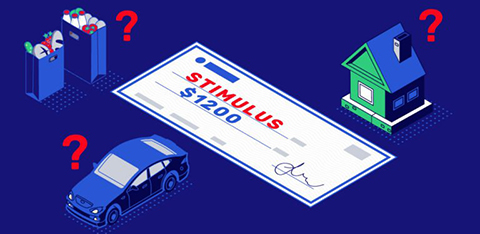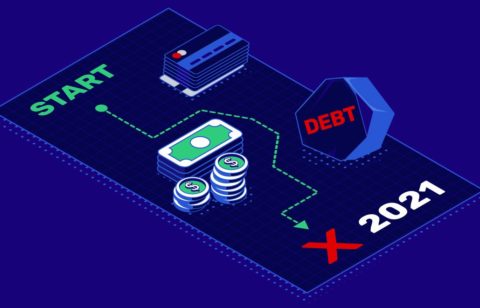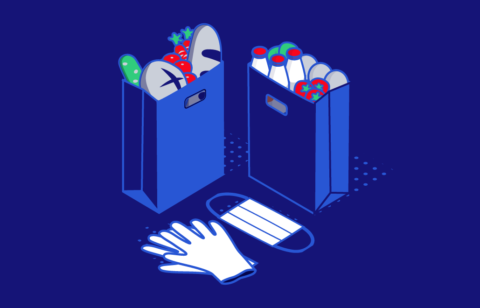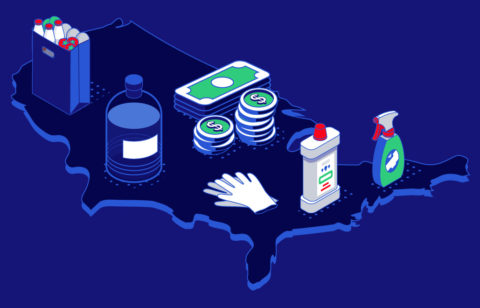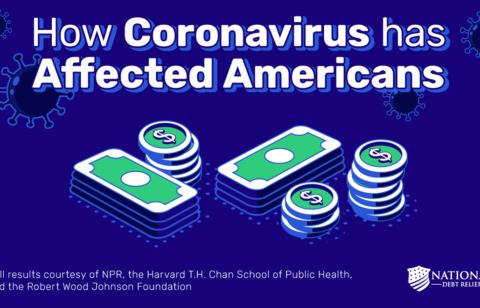In a normal world, if you received an unexpected check for $1,200 and you had outstanding debt, the best financial move would be to put it toward that debt to get a step closer to eliminating it. Unfortunately, the coronavirus has us living in abnormal times. While many people are able to work from home, much of the country has found itself unemployed, abruptly and unexpectedly. During the last week of March, more than 6.6 million people in the United States filed for unemployment, shattering the previous record of 3.3 million filers who filed a week earlier.
Fortunately, some relief is on the way. The coronavirus relief bill will provide relief of up to $1,200 (in a one-time payment) for most Americans, depending upon their 2019 tax returns (2018 for people who’ve yet to file their current return). It also provides an additional $500 per qualifying child under 17. When the coronavirus stimulus check arrives, you’ll need to decide how to spend it wisely, taking into account the current state of things.
If You Still Have Your Job
If you’re one of the lucky ones who already worked from home or easily transitioned to it, you have a few options.
Put it into an Emergency Fund
Do you have 6 months’ worth of expenses set aside for an emergency? With the economy in such turmoil, there’s a lot of uncertainty as to what the next few months, or years, may bring. You may have a job now, but things could change if the economy is slow to recover. Having an emergency fund that covers your expenses to fall back on is essential.
Invest in Your Retirement
If you’re young and secure in your job, you may want to consider putting the coronavirus stimulus check into a retirement account, such as a Roth IRA, and let it grow until you reach retirement age. However, because you won’t be able to access the money if you need it without incurring penalties, you should be certain that you won’t need it in the short term.
Invest in Your Children’s Education
Put the $500 per child that you receive into a college fund for your children if you haven’t started one already. A 529 plan can grow into a big chunk for books and tuition, especially if you contribute more to it. After the crisis has passed, set up recurring deposits into the account. Even small amounts now will add up to a lot in the future.
Help Others
Food banks and local charities are in dire need of donations during this time. Many people have been hit hard by the pandemic, and you may even have friends or family members who could use some help.
If You Have Been Furloughed or Lost Your Job
The coronavirus stimulus check may not be equal to your lost paycheck, but it can help cover some expenses.
Pay Your Critical Bills First
Before you do, however, take the time to call all your creditors, including utility companies and your mortgage company or landlord, to find out if they’re offering any kind of relief, such as lowered or deferred payments. As part of the stimulus package, student loan repayments have been suspended and interest will not accrue until September 30. If you can arrange deferments with your high-interest credit cards, be sure to read the fine print, as deferments could cause your balance to skyrocket.
Bank the Rest for Now
It’s your emergency fund, and the emergency is now! You may need it for food or next month’s bills. Hopefully, you’ve been able to receive unemployment benefits, which, as part of the stimulus package, should include as much as $600 per week on top of your original benefit. During the crisis, be frugal and spend carefully, because the immediate future is uncertain. As things get back to normal, any money left over should be first used to set up an emergency fund (for times like this!), pay down debt, and invest in your future.
Don’t Be Scammed
As soon as the news came of a proposed government stimulus package, scammers came out of the woodwork. The most common scam is someone who calls, texts, or emails claiming to be from the IRS and in need of more information, such as your social security number and banking information, before being able to send out your money. The fraudster may send out fake checks that require more information before they can be cashed, send emails with links that contain malware to verify information, or perpetrate any number of other ways to scam you. The coronavirus stimulus check will be automatically sent directly to the bank accounts on file with the IRS for taxpayers, including retirees, so you won’t have to do anything. The IRS has more information on the relief payments here.
Now more than ever, we’re seeing the importance of having an emergency fund and being able to budget your money. It’s easy to think that your job is secure and you’re healthy and thus, that nothing will change. However, livelihoods are at the mercy of the world around us, and an economic downturn can come out of nowhere. When the world is in chaos, as it is now, having money set aside can give you some peace of mind and a feeling of security until things get back to normal.
